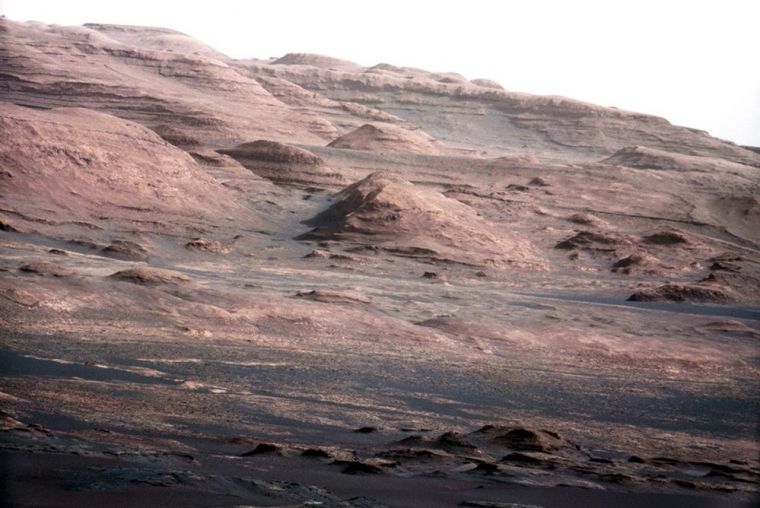Alien life on Mars? Latest study on surface water toughens challenge for future explorers

Here's some bad news for those hoping to see alien life on Mars: The conditions of water on the Red Planet are not exactly perfect for human sustenance.
In a study published this week on the journal "Nature Geoscience," researchers revealed that liquid water on the surface of Mars is not only flowing but also boiling.
The researchers, led by Marion Massé from the University of Nantes, made this discovery by building a chamber simulating the atmospheric conditions on Mars. The atmospheric pressure on the Red Planet is half a percent of that found on Earth, causing Mars to be surrounded by a thin shroud of gas.
In their experiment, the scientists poured ice into the chamber, and as expected, the pieces of ice melted. What struck the researchers most was the fact that the surface of the water boiled as it flowed, and that the boiling was so strong it was able to move dirt and debris with the flowing water.
What caused the ice to melt? Study co-author Susan Conway explained in an article on The Sunday Morning Herald that temperature was not the main factor, but it was actually the atmospheric pressure.
"The atmospheric pressure on Mars is very low compared to that on the Earth, which means that water boils at a much lower temperature than it does on Earth," Conway said. "On the Martian surface the pressure is five to 10 millibars meaning that liquid water boils no matter what the temperature is."
The researchers also said that this boiling, flowing water with dirt and dust could also explain the mysterious streaks that appear on the surface of Mars.
Conway said this new discovery decreases the possibility that life exists on Mars.
"[Our results] show much less water is needed and that the water that is produced is very short-lived — therefore not a fabulous environment for micro-organisms," she said.
She added that future efforts to build a human settlement on Mars should be mindful of the water conditions on the planet.
"If a future Mars colony wanted to build canals on Mars, then they would have to be careful to design them in order to avoid this boiling effect, which could result in erosion of the canal banks," the study co-author said.











